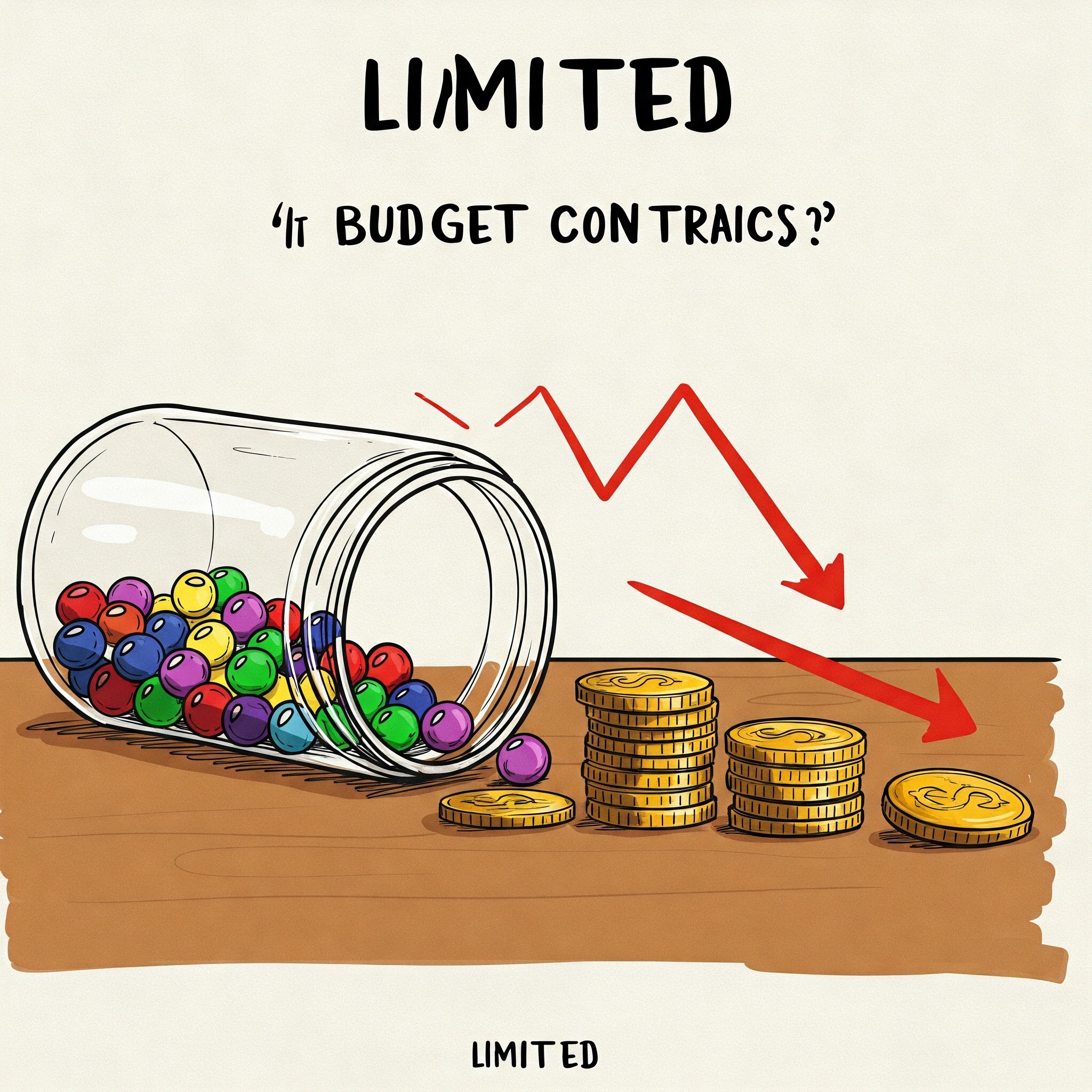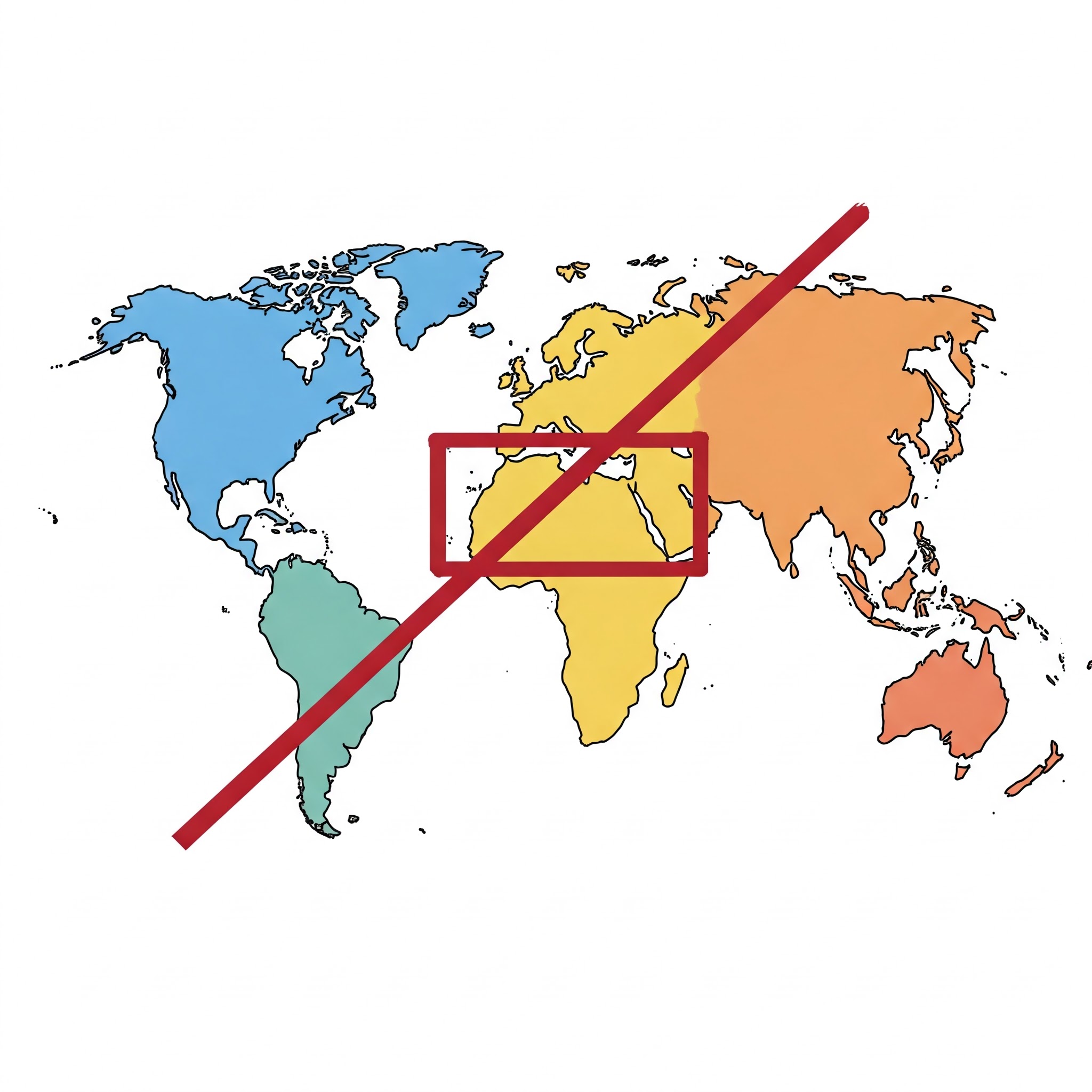Limited
Definition
Limited is an adjective and, in certain contexts, a noun. As an adjective, it refers to something that is restricted in size, amount, extent, or scope. As a noun, it can refer to a type of company structure, especially in business, where liability is limited to specific terms.
Parts of Speech
- Adjective
- Noun
Pronunciation
American English
- IPA Pronunciation: /ˈlɪmɪtɪd/
- Respelling: LIM-i-tid
British English
- IPA Pronunciation: /ˈlɪmɪtɪd/
- Respelling: LIM-i-tid
Etymology
The word "limited" derives from the Latin "limitare," meaning "to bound or confine," through Old French "limiter." It entered Middle English in the 14th century, carrying the sense of being restricted or confined.
Derivatives
- Limit (noun/verb)
- Limitation (noun)
- Unlimited (adjective)
- Limiter (noun)
- Limitedly (adverb)
Synonyms
- Restricted
- Confined
- Finite
Antonyms
- Unlimited
- Boundless
- Infinite
Usage
The term "limited" is widely used in business, resource management, and general descriptions. For example, "The tickets are limited to one per person," or "The company operates as a limited liability entity."
Related Terms
- Restriction: A rule or condition that limits something.
- Scope: The extent of the area or subject matter.
- Quota: A fixed amount or limit.
Detailed Definitions
Adjective
- Restricted in size, amount, or extent: Indicates that something is confined within boundaries.
- Example: "The available resources were limited due to budget constraints."
- Available only in small quantities or for a short time: Refers to scarcity or exclusivity.
- Example: "This is a limited edition product."
- Constrained by specific rules or conditions: Refers to operational or legal restrictions.
- Example: "The company's operations are limited to domestic markets."
Noun
- A type of company structure where liability is restricted: Describes an entity where liability does not extend beyond agreed-upon terms.
- Example: "XYZ Ltd. operates as a private limited company."
limited



🇨🇳 Mandarin
- 有限 (limited as in restricted): yǒuxiàn
- IPA: /joʊ̯ɕjɛn˥˩/
- Respelling in English: yo-syen
- 股份有限公司 (limited as in company): gǔfèn yǒuxiàn gōngsī
- IPA: /ku˥˩ fən˧˥ joʊ̯ɕjɛn˥˩ kʊŋ˥˩ sz̩˥/
- Respelling in English: goo-fen yo-syen gong-see
🇮🇳 Hindi
- सीमित (limited as in restricted): sīmit
- IPA: /siːmɪt̪/
- Respelling in English: see-mit
- प्राइवेट लिमिटेड कंपनी (limited as in company): prāivet limiṭed kampanī
- IPA: /pɾaːɪveːʈ lɪmiːʈeːd̪ kʌmpʌniː/
- Respelling in English: pry-vet li-mi-ted kum-panee
🇪🇸 Spanish
- Limitado (limited as in restricted): limitado
- IPA: /limiˈtado/
- Respelling in English: lee-mee-tah-doh
- Sociedad limitada (limited as in company): sociedad limitada
- IPA: /soθjeˈðað limiˈtaða/
- Respelling in English: so-thye-dath lee-mee-tah-dah
🇫🇷 French
- Limité (limited as in restricted): limité
- IPA: /limite/
- Respelling in English: lee-mee-tay
- Société à responsabilité limitée (limited as in company): société à responsabilité limitée
- IPA: /sɔsjete a ʁesɔ̃sabilite limite/
- Respelling in English: so-see-et-ay a re-sohn-sa-bee-lee-tay lee-mee-tay
🇸🇦 Modern Standard Arabic
- محدود (limited as in restricted): maḥdūd
- IPA: /maħduːd/
- Respelling in English: mah-dood
- الشركة المحدودة (limited as in company): al sharikah al mahdūdah
- IPA: /al ʃa.riː.ka al maħduː.da/
- Respelling in English: al sha-ree-kah al mah-doo-dah
🇧🇩 Bengali
- সীমিত (limited as in restricted): sīmit
- IPA: /siːmit/
- Respelling in English: see-mit
- প্রাইভেট লিমিটেড কোম্পানি (limited as in company): praibheṭ limiṭed koṁpanī
- IPA: /pɹaɪ̯bʱet̪ limiʈed̪ kʊmpani/
- Respelling in English: pry-vet li-mi-ted kum-panee
🇷🇺 Russian
- Ограниченный (limited as in restricted): ogranichennoy
- IPA: /ɐgrɐˈnʲit͡ɕɪnːɨj/
- Respelling in English: o-gra-nee-cheen-noy
- Общество с ограниченной ответственностью (limited as in company): obschestvo s ogranichennoy otvetstvennost'yu
- IPA: /ɐpˈɕːestvə s ɐgrəˈnʲit͡ɕɪnːəj ɐtˈvʲetstvʲɪnəsʲtʲju/
- Respelling in English: ob-she-stvo s o-gra-nee-cheen-noy ot-vyet-stven-nos-tyu
🇵🇹 Portuguese
- Limitado (limited as in restricted): limitado
- IPA: /li.mi.ˈta.du/
- Respelling in English: lee-mee-tah-doo
- Sociedade por quotas (limited as in company): sociedade por quotas
- IPA: /so.si.eˈdɐ.dʒi poʁ ˈkwɔ.tɐs/
- Respelling in English: so-see-eh-dah-zhee por kwo-tahs
🇮🇩 Indonesian
- Terbatas (limited as in restricted): terbatas
- IPA: /tərˈbatas/
- Respelling in English: ter-ba-tas
- Perseroan Terbatas (limited as in company): perseroan terbatas
- IPA: /pərsərɔan tərˈbatas/
- Respelling in English: per-ser-o-an ter-ba-ta
🇩🇪 German
- Begrenzt (limited as in restricted): begrenzt
- IPA: /bəˈɡrɛnt͡st/
- Respelling in English: be-grentst
- Gesellschaft mit beschränkter Haftung (limited as in company): Gesellschaft mit beschränkter Haftung
- IPA: /ɡəˈzɛlʃaft mɪt bəˈʃʁɛŋktɐ ˈhaftʊŋ/
- Respelling in English: ge-zell-shaft mit be-shrenk-ter haf-tung
🇯🇵 Japanese
- 限定 (limited as in restricted): gentei
- IPA: /ɡẽ̞nte̞ː/
- Respelling in English: gen-tei
- 株式会社 (limited as in company): kabushiki gaisha
- IPA: /kabɯ̟ᵝɕiki ɡa̠iɕa̠/
- Respelling in English: ka-bu-shi-ki gai-sha
🇻🇳 Vietnamese
- Hạn chế (limited as in restricted): hạn chế
- IPA: /haːn˧˥ ʈʂeː˨˩/
- Respelling in English: han che
- Công ty trách nhiệm hữu hạn (limited as in company): công ty trách nhiệm hữu hạn
- IPA: /kɔŋ˧˥ tʰi˨˩ˀ tʂaːk̚˦˥ɓ niəm˧˥ ɦɨəm˧˥ haːn˧˥/
- Respelling in English: kong tee trach neem huu han
🇰🇷 Korean
- 제한된 (limited as in restricted): jehan-doen
- IPA: /t͡ɕe̞.han̚.dʌn/
- Respelling in English: je-han-doen
- 주식회사 (limited as in company): jusikhoesa
- IPA: /t͡ɕu.ɕʰi.kʰø.sʰa̠/
- Respelling in English: ju-shik-hwe-sa
🇹🇷 Turkish
- Sınırlı (limited as in restricted): sınırlı
- IPA: /sɯːnɯɾɫɯ/
- Respelling in English: suh-nur-luh
- Anonim Şirket (limited as in company): anonim şirket
- IPA: /ɑnoːnim ʃiɾket/
- Respelling in English: a-no-neem shir-ket
🇵🇰 Urdu
- محدود (limited as in restricted): mehdood
- IPA: /meɦduːd/
- Respelling in English: meh-dood
- پرائیویٹ لمیٹڈ (limited as in company): private limited
- IPA: /pɹaɪʋeːʈ lɪmiːʈeːd̪/
- Respelling in English: pry-vet li-mee-ted





